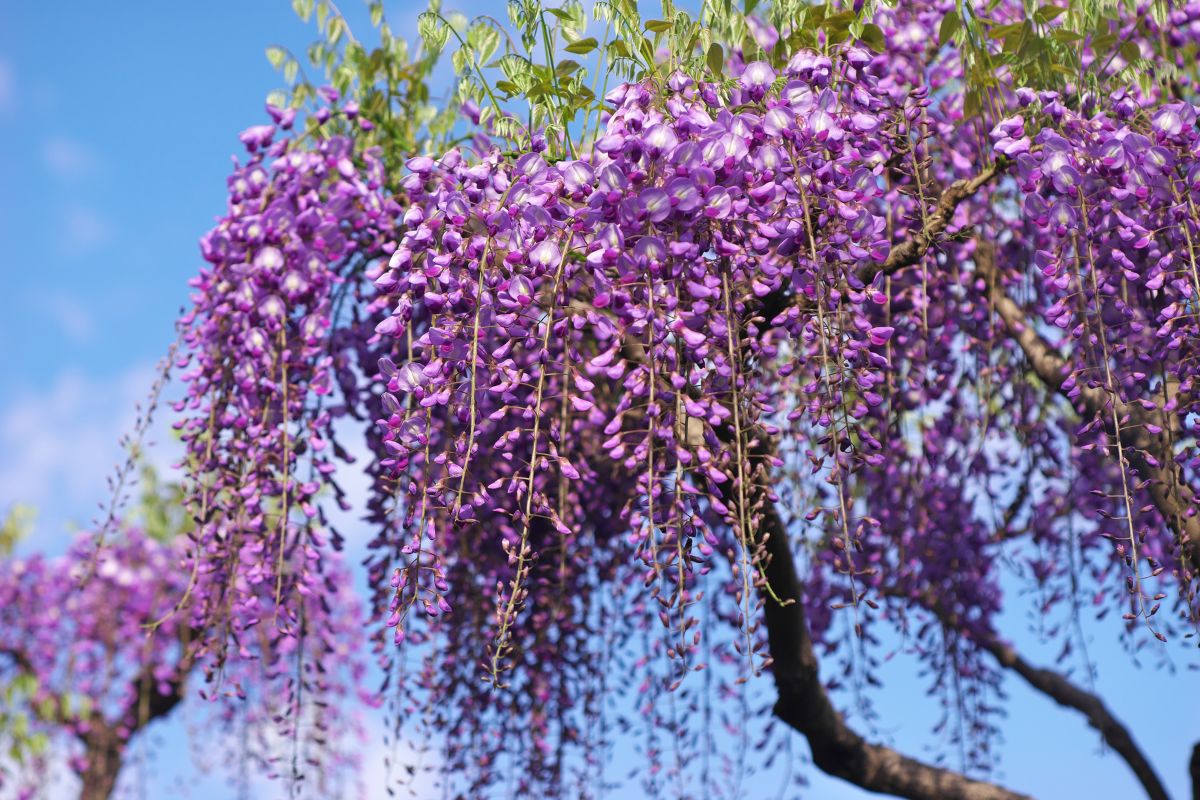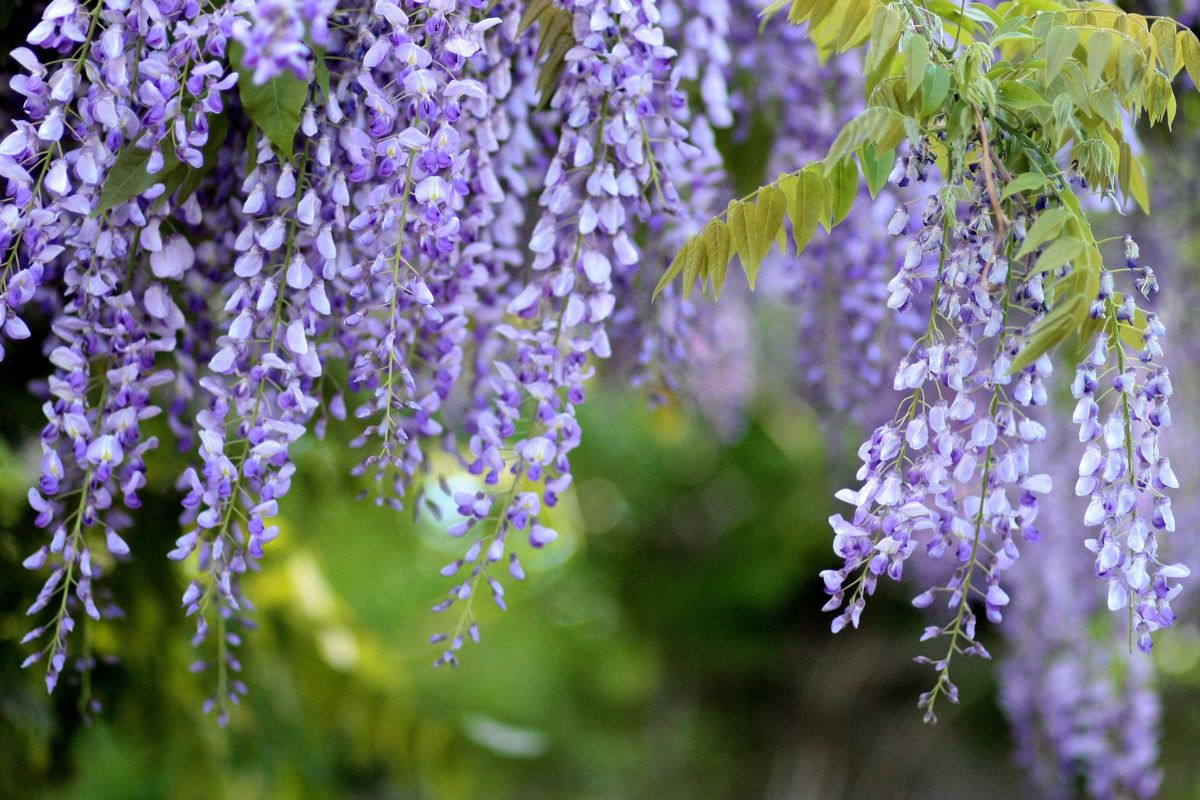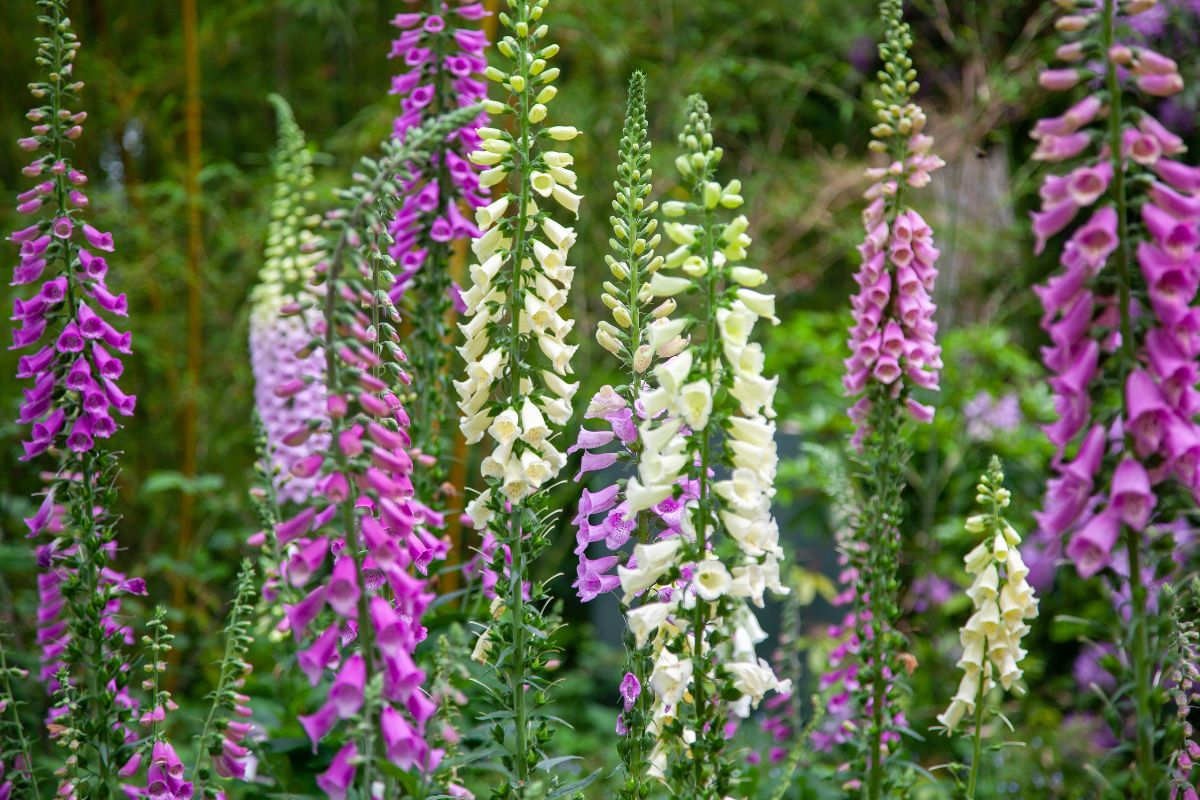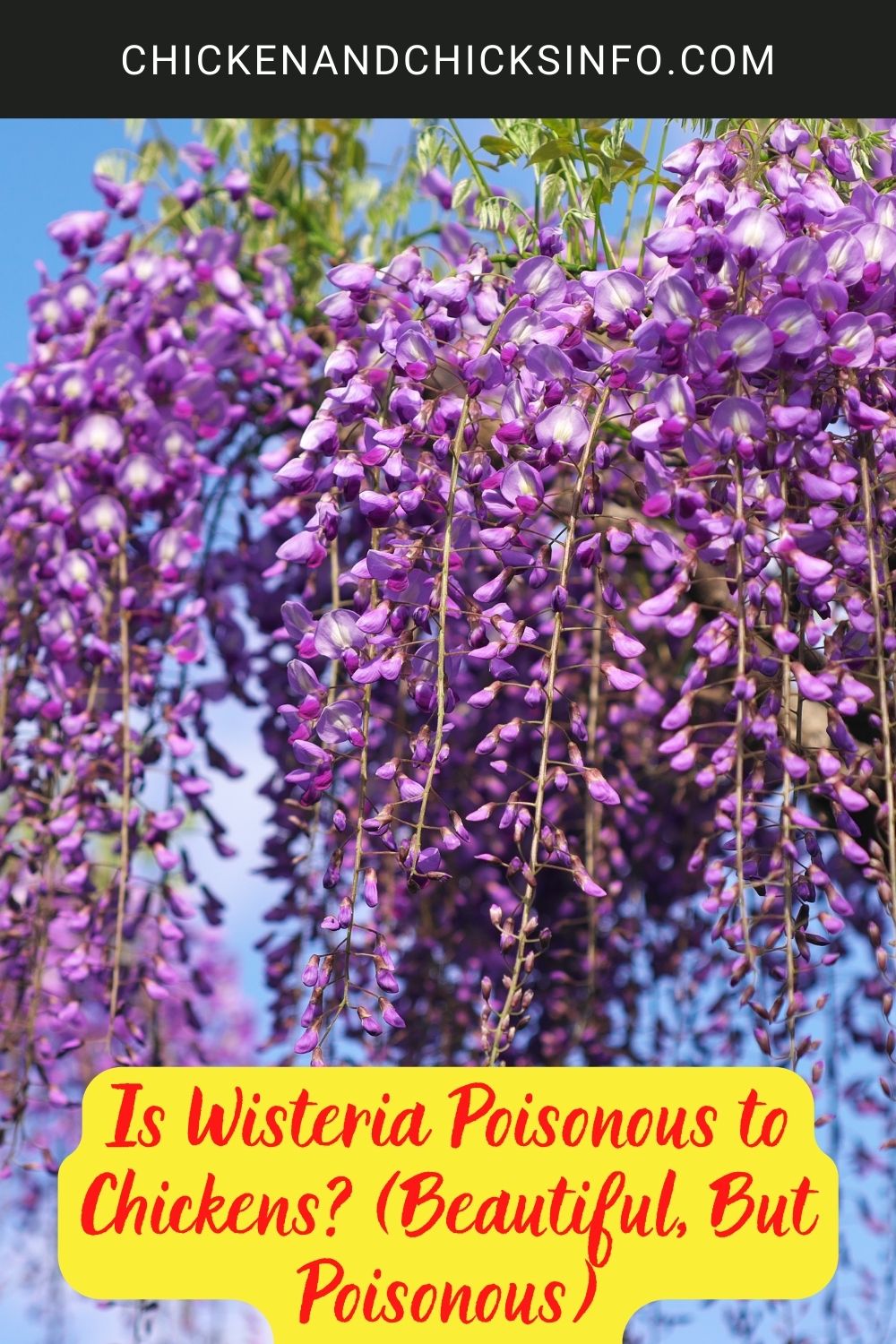
Backyard chicken will eat just about anything they can get a hold of. So, it’s important you’re aware of which plants are poisonous and those that aren’t - because you can’t always rely on your chooks to know.
Wisteria is one of the plants that are poisonous to chickens. If your chickens eat wisteria you can expect anything from mild gastrointestinal irritation to diarrhea, vomiting, and lethargic behavior.
Here’s everything you need to know about wisteria; the risks and symptoms when eaten, and some of the other poisonous plants to be aware of:
Jump to:
What Is Wisteria?
Wisteria is a high-climbing vine that can grow and spread at an incredible rate given the right conditions.
Some species, such as the Japanese and Chinese wisteria species are considered an invasive species and sometimes cause havoc. While others are usually welcome due to their beautiful appearance.
Despite being toxic if ingested, few people can deny it’s a beautiful looking plant. The cascades of blue to purple flowers look awesome overhanging an archway or pergola, and it’s an easy way to bring some life to a garden.
Is Wisteria Poisonous to Chickens?

Yes, wisteria is poisonous to chickens. As well as being toxic to us, other pets, livestock, and most animals that ingest some of the plant.
According to almanac.com, this is because the plant contains substances called lectin and wisterin, two substances that are toxic when ingested.
Most backyard chicken owners that are aware of some of the other foods and plants that are toxic to chickens are no strangers to lectin.
Lectins are a type of protein found in all forms of life, but we - and a lot of animals - are not able to digest them.
In small amounts, lectins can cause gastrointestinal irritation. In large amounts, they can reduce the body’s ability to absorb nutrients and can be fatal to small animals like chickens.
Some of the most well-known foods to contain lectins are raw beans, and members of the nightshade family such as tomatoes, and potatoes.
It’s still possible for chickens to safely eat beans. As long as they are cooked properly, the toxins are destroyed. In the case of tomatoes and potatoes, as long as they are ripe they are also safe.
Related - You can find out more about the various foods chickens can and can’t eat in the blog.
Some Other Plants That Are Harmful to Chickens

Some of the most stunning, colorful, and harmless-looking flowers and plants are actually toxic to chickens.
It’s incredibly important that you take a look at the area your chickens are free to roam in and identify what plants are there that they could possibly eat.
To give you somewhere to start, below are some of the most common plants that are poisonous to chickens (it’s not a complete list by any means):
- Amaryllis
- Azaleas
- Foxglove
- Tansy
- Nicotiana
- Daffodils
- Tulips
- Jimson Weed
- Monkshood
- Nightshade
- Trumpet Vine
- Morning glories - read about my experience with these here.
- Bluebells - read more about why bluebells are toxic here.
It’s surprising how many common backyard plants contain harmful toxins and poisons, isn’t it?
If your chickens have the luxury of being able to free-range across a wide area, it’s a good idea to get out there and see what trouble they can get into!
Will Chickens Leave Plants That Are Poisonous to Them?
One of the most common things I read online about chickens is that they’re “smart” enough to not eat plants and foods that are poisonous or toxic for them.
I’ve also read countless accounts from chicken owners describing the wide range of symptoms and health conditions associated with their chickens eating poisonous substances.
So, are chickens smart enough to avoid eating things that can harm them?
In a word, no.
At least, not all chickens are. And it’s likely that some chickens will instinctively avoid some harmful foods and plants, but not everything that poses a health risk.
Which is why I always remove all possible health risks to my flock. I don’t know about you, but I just can’t trust them not to eat something they shouldn’t!
In Summary
Hopefully, this information has helped raise awareness of the potential risks surrounding wisteria (and other plants) growing where your chickens are free to roam.
Wisteria is poisonous to chickens and other household pets. Whether or not they dare to try it is another matter!





